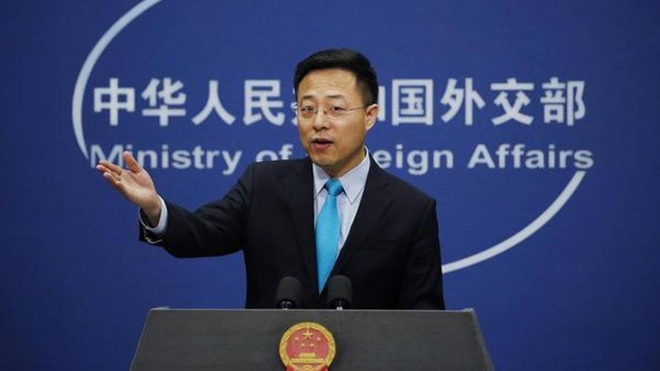Beijing … News Time
The Chinese Foreign Ministry has categorically rejected a law signed by US President Donald Trump on Tibet and called for refraining from interfering in Hong Kong-related affairs. According to a report by Reuter’s news agency, the Chinese Foreign Ministry said that it rejects the law signed by Donald Trump on Tibet yesterday. Foreign Ministry Spokeswoman Zhao Lijian’s Remarks on the Tibetan. Earlier, the President of the United States announced the policy on Tibet and signed the Tibetan Policy and Support Act 2020. The law states that a US consulate will be set up in Lhasa and that Tibetans will be given the full right to choose a successor to the Dalai Lama. During the briefing, the Chinese Foreign Ministry spokesman urged the United States not to interfere in Hong Kong’s affairs. “The United States should not use Hong Kong to interfere in our internal affairs,” he said. The Chinese statement came after the US embassy in China demanded the release of 12 Hong Kong detainees in Shenzhen. A spokesman for the US embassy said in a statement that the “so-called crime, rebellion against oppression” and China’s commitment to prevent its citizens from working freely anywhere. The Chinese spokesman said the US statement contradicted the facts. He said China fully disagrees with the statement and urges the United States to refrain from interfering in China’s internal affairs.
It should be noted that in 1991, the UK handed over Hong Kong to China and China is ruling here under one country, two system frameworks and Hong Kong has semi-autonomy in October last year, large-scale protests erupted in Hong Kong against a proposed extradition law, highlighting sharp differences between the democratic-minded people of Hong Kong and Beijing’s ruling Communist Party. The protests began peacefully in Hong Kong, but turned violent after a strong government response. The law allowing Hong Kong citizens to be sent to China for trial was withdrawn after fierce protests, but the protests continued for several months, with freedom to vote for rights and police brutality. Demands for investigation were included. China had earlier this year passed a national security law on Hong Kong that has come into force, prompting a backlash from the United States and Britain, but China has rejected it as interference in internal affairs.




